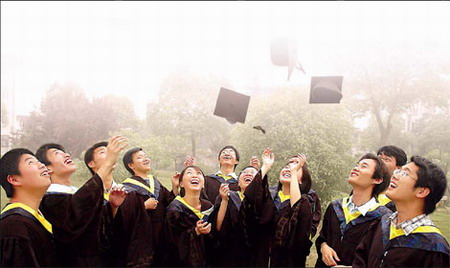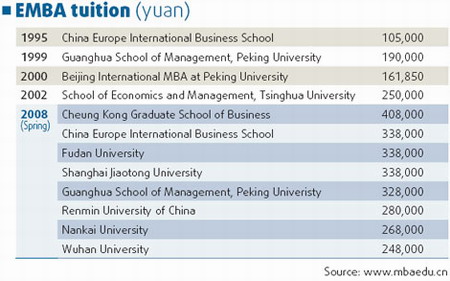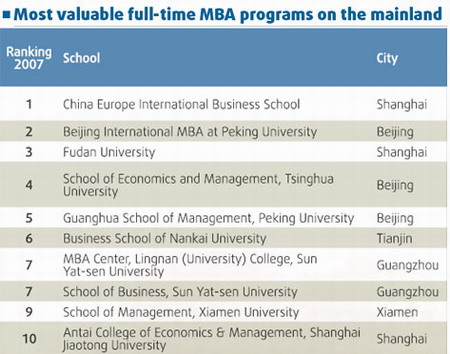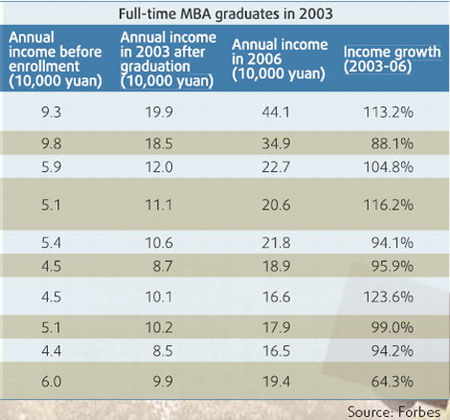
|
BIZCHINA> 30 Years of Reforms
 |
|
Related
Domestic MBAs on the rise
By Liu Jie (China Daily)
Updated: 2008-09-02 13:58
 In the 1990s, only a few universities offered MBA (Master of Business Administration) programs. Going abroad was not a viable alternative for many students because the average family income then was relatively low. Because of the strong demand for management expertise, having an MBA educational background at that time was seen as a passport to secure jobs and high incomes in large domestic enterprises and multinational companies. This has spurred many domestic universities to offer MBA programs either independently or in joint ventures with overseas institutions. The first batch of China's MBA schools was officially launched in 1991 in nine institutions, including Peking University, Renmin University of China and Fudan University. A total of 86 students were enrolled, most of them university graduates majoring in economics and business.
MBA schools, which placed a special emphasis on case studies and group discussions, were something of a novelty in the early days of economic reform as they were fundamentally different from the traditional professional education offered by Chinese universities and colleges at the time, which concentrated on theoretical analysis and research. The first 86 graduates from domestic MBA schools were snapped up by some of the largest and most prominent domestic and foreign enterprises. They were the idols and role models of the many thousands of university students who harbored an ambition to succeed in China's economic bonanza. The burning thirst for advancement among the ranks of young executives in the corporate sector has fuelled an MBA mania. The number of MBA schools here exceeded 60 by the end of the last century and the enrollment of MBA students reached 10,000 in 2000. MBA graduates' annual income surged. The average income of graduates from the class of 2003 in China's top 10 MBA schools grew between 64.3 percent and 116.2 percent in the three years to 2006. Since then, the supply of MBAs seems to have caught up with the demand. New MBA graduates are finding it increasingly difficult to land their ideal jobs, while corporations in China have become more discerning in recruiting. But as the corporate sector continues to expand, the demand for management talent has remained strong. By 2007, there were a total of 96 domestic MBA schools with a combined enrollment of over 20,000 students. The attributes most valued by corporate recruiters are global vision, strategic thinking, strong executive power, as well as sound communications and coordination skills. It's also a good thing for many Chinese MBA schools to improve their education quality, they are adjusting their courses to adapt to the real market and taking measures to enhance MBA students' practical skills. That's bad news for MBA schools that fail to follow the market trend and for students who enter into the program to get the MBA halo rather than developing practical skills.
  
(For more biz stories, please visit Industries)
|